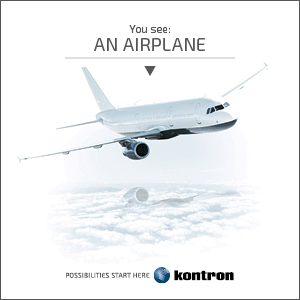British low-cost carrier easyJet has assured that seat pitch will remain unchanged when it takes delivery of its first 186-seat Airbus A320 in May.
Seat pitch in the new configuration is unchanged from the 29″ of the current 180-seat arrangement, confirms the operator, which began retrofitting aircraft with Recaro’s lightweight SL3510 seat in 2013, but ordered 30,000 more of the same in October 2015 for 56 in-service A320s, and for linefit on 100 on-order A320neos.
Searching for a seat that would ensure passenger comfort for its one- to two-hour flights, easyJet also applied strict criteria concerning durability, maintainability and ease of turnaround, before settling on the SL3510. “Our day-to-day operation and on-time performance are of great importance to us and the biggest driver of customer satisfaction. The primary influences on turn times are ease of cleaning and security search, both subjects carefully assessed during selection of the Recaro seat,” easyJet head of design Adam Duke tells RGN.
 “Each seat carries around 2,000 passengers every year. So we clearly defined our requirements and meticulously assessed products through a cross-functional team of the appropriate subject experts. As an example, to assess maintainability I shut myself in a room with one of our cabin engineers for a day. We dismantled seats and put them back together again, recording part replacement times. After final selection we worked with Recaro on optimising standard catalogue options and developing easyJet customisation. Our working partnership with Recaro has continued since entry into service, with regular coordination meetings and practical workshops, culminating in some innovative changes that will be introduced with delivery of our first 186-seat cabin in May.”
“Each seat carries around 2,000 passengers every year. So we clearly defined our requirements and meticulously assessed products through a cross-functional team of the appropriate subject experts. As an example, to assess maintainability I shut myself in a room with one of our cabin engineers for a day. We dismantled seats and put them back together again, recording part replacement times. After final selection we worked with Recaro on optimising standard catalogue options and developing easyJet customisation. Our working partnership with Recaro has continued since entry into service, with regular coordination meetings and practical workshops, culminating in some innovative changes that will be introduced with delivery of our first 186-seat cabin in May.”
All easyJet’s A320s will be fitted with the new Recaro seat by spring 2018. Though Duke did not divulge whether easyJet has opted to install the reduced footprint Space-Flex galley/lavatory to achieve the 186-seat layout on its forthcoming May delivery, it seems a logical choice (as Spanish LCC Vueling did for its 186-seat A320 LOPA with seats pitched at an estimated 29″).
According to Recaro, the innovations to be unveiled by easyJet in May include ‘a tablet PC holder’, but there will be no in-seat power. “Not all LCCs have the same demographic or business model; no doubt some will judge in-seat power to be a benefit to their airline, others not so. Certainly it’s a very individual choice for an airline and one that needs to be carefully considered,” suggests Duke.

Recaro showcased a PED holder with elastic at last year’s Aircraft Interiors Expo. Image – John Walton
The carrier is also giving consideration to inflight wifi. According to an easyJet spokeswoman, the airline dismissed ‘first-generation’ connectivity systems for their lack of quality and the significantly increased fuel burn they caused. But easyJet is “now talking to second-generation technology providers, including Inmarsat. EasyJet believes it is no longer a question of if but when we are able to install a product that works well for our passengers and the airline.” Inmarsat is rolling out a hybrid air-to-ground (ATG)/S-band system in Europe.
Meanwhile, Duke says feedback “from customers, crew and staff” about the SL3510 seats already installed has been “overwhelmingly positive, and most of that feedback centres on the seat’s look and feel. We also managed to remove in excess of 550kg from each aircraft fitted with the seats, reducing our carbon footprint and contributing to our commitment to make travel affordable by keeping fares low.” Passengers will get a chance to form opinions about the denser 186-seat A320 when it arrives this spring.

Recaro SL3510 for easyJet










